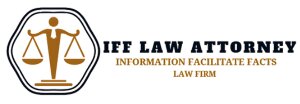Best Conveyancing Lawyers in Chennai
Share your needs with us, get contacted by law firms.
Free. Takes 2 min.
Free Guide to Hiring a Real Estate Lawyer
List of the best lawyers in Chennai, India
About Conveyancing Law in Chennai, India
Conveyancing refers to the legal process of transferring ownership of immovable property such as land, houses, or commercial spaces from one party to another. In Chennai, as in the rest of India, conveyancing is governed by a combination of national and local laws. This process involves drafting, reviewing, and registering property documents that legally record the transfer of ownership. Proper conveyancing ensures that the new owner’s rights are legally protected and that the transaction is valid and enforceable in law. Chennai's rapidly growing real estate market makes conveyancing an essential aspect of buying and selling property in the city.
Why You May Need a Lawyer
People commonly seek legal help in conveyancing for several reasons. Property transactions can be complex, and mistakes may result in significant financial or legal consequences. You may require a lawyer in the following situations:
- Buying or selling residential, commercial, or industrial property
- Drafting or reviewing sale agreements and sale deeds
- Verifying the legal title of a property before purchase
- Handling property inheritance and succession
- Addressing property disputes or litigation
- Facilitating the registration of property documents with the appropriate authorities
- Advising on stamp duty, registration charges, and taxes
- Ensuring compliance with zoning and land use laws
Legal professionals make the conveyancing process smoother, reduce the risk of fraud, and help protect your interests at every stage of the transaction.
Local Laws Overview
Several central and state laws regulate conveyancing in Chennai, Tamil Nadu. Key aspects include:
- Transfer of Property Act, 1882 - This central law governs the transfer of property by sale, mortgage, lease, gift, or exchange.
- Registration Act, 1908 - Mandates the compulsory registration of property documents to make them legally valid and to provide public notice of the transaction.
- Indian Stamp Act, 1899 and Tamil Nadu Stamp Act, 2019 - These laws regulate the stamping of documents and prescribe the stamp duty to be paid on property transfers in Chennai.
- Local Municipal Laws and Zoning Regulations - Govern building use, permissions, and land use in various localities of Chennai.
- Tamil Nadu Land Reforms (Fixation of Ceiling on Land) Act, 1961 - Imposes restrictions on the holding and transfer of agricultural land.
- Guideline Value - The government periodically fixes minimum values for properties in different areas of Chennai, which affects the calculation of stamp duty and registration fees.
The conveyancing process typically requires proof of clear title, payment of applicable taxes, execution and registration of sale deeds, and compliance with all regulatory requirements. The Chennai Metropolitan Development Authority (CMDA) and local Sub Registrar Offices play key roles in this process.
Frequently Asked Questions
What is conveyancing in Chennai?
Conveyancing is the legal process of transferring the ownership of property from one person to another, ensuring the buyer obtains a clear and lawful title to the property.
Do I need a lawyer for property registration in Chennai?
While not mandatory, having a lawyer is highly recommended to ensure proper verification of property documents, prevent fraud, and complete the transaction smoothly.
What are the documents required for property transfer?
Important documents include the title deed, sale agreement, encumbrance certificate, property tax receipts, approved building plan, identity and address proofs, and any previous chain-of-title documents.
How is stamp duty calculated in Chennai?
Stamp duty is usually a percentage of the higher value between the sale consideration and the government guideline value. The exact percentage varies depending on the transaction and property type.
Where do I register property documents in Chennai?
Property documents must be registered at the Sub Registrar Office with jurisdiction over the property's location.
How long does conveyancing take in Chennai?
The timeframe depends on the complexity of the transaction and the availability of documents, but usually ranges from a few days to a few weeks if all paperwork is in order.
What is an Encumbrance Certificate?
An Encumbrance Certificate is an official record that certifies whether a property is free from monetary or legal liabilities such as a mortgage or an existing loan.
Can a property be sold with a disputed title?
It is not advisable to buy or sell property with a disputed title, as it may expose the buyer to legal risks and potential litigation. Always ensure the title is clear before any sale.
What is the role of the Chennai Metropolitan Development Authority (CMDA) in conveyancing?
The CMDA is responsible for planning, granting layout and building permissions, and verifying compliance with development regulations in Chennai. CMDA approvals are essential for certain properties.
What should I do if I suspect fraud in a property transaction?
Immediately consult a qualified conveyancing lawyer and consider reporting the matter to the police and local Sub Registrar Office. A legal expert can help you take the appropriate steps to protect your interests.
Additional Resources
Those seeking more information or assistance can turn to the following resources:
- Chennai District Sub Registrar Offices - Responsible for property registration and document verification.
- Chennai Metropolitan Development Authority (CMDA) - Manages urban planning and building permission matters.
- Tamil Nadu Registration Department - Handles the registration of property documents across the state.
- Bar Council of Tamil Nadu and Puducherry - For help in finding licensed property lawyers.
- Government of Tamil Nadu Revenue Department - Provides records related to land revenue and property ownership.
- Local legal aid clinics - Offer basic guidance for individuals without legal representation.
Next Steps
If you need assistance with a property transaction in Chennai, follow these steps to protect your legal and financial interests:
- Gather all relevant property documents and personal identification papers.
- Consult a qualified conveyancing lawyer in Chennai with experience in local property matters.
- Ask your lawyer to review documents for authenticity, check for encumbrances, and clarify tax or legal obligations.
- Work with your lawyer to draft or review the sale agreement, ensuring it reflects all agreed terms.
- Complete payment of stamp duty and registration charges before registering the property transaction at the appropriate Sub Registrar Office.
- Ensure that the new title and related documents are updated and securely stored.
- If disputes arise, rely on your lawyer’s guidance for resolution or litigation, if necessary.
Taking professional legal help is the best way to ensure a smooth, secure, and legally valid property transaction in Chennai.
Lawzana helps you find the best lawyers and law firms in Chennai through a curated and pre-screened list of qualified legal professionals. Our platform offers rankings and detailed profiles of attorneys and law firms, allowing you to compare based on practice areas, including Conveyancing, experience, and client feedback.
Each profile includes a description of the firm's areas of practice, client reviews, team members and partners, year of establishment, spoken languages, office locations, contact information, social media presence, and any published articles or resources. Most firms on our platform speak English and are experienced in both local and international legal matters.
Get a quote from top-rated law firms in Chennai, India — quickly, securely, and without unnecessary hassle.
Disclaimer:
The information provided on this page is for general informational purposes only and does not constitute legal advice. While we strive to ensure the accuracy and relevance of the content, legal information may change over time, and interpretations of the law can vary. You should always consult with a qualified legal professional for advice specific to your situation.
We disclaim all liability for actions taken or not taken based on the content of this page. If you believe any information is incorrect or outdated, please contact us, and we will review and update it where appropriate.









